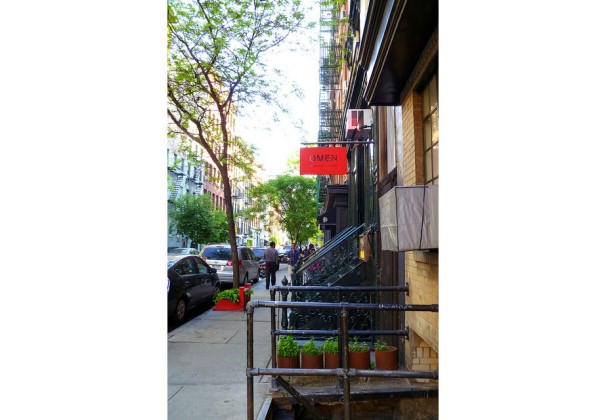
UPDATE October 16, 2013 11:44 p.m.: According to NYU Public Safety, the NYPD have made an arrest regarding the attempted rape and robbery of an NYU student on Thompson Street.
Original story as follows:
A 20-year-old NYU student was put in a chokehold and nearly raped, according to police, on Thompson Street, between Prince and Spring streets, on Oct. 8.
The student assaulted on Thompson Street did not report the crime to the university, but NYU Public Safety notified students following the attack after they learned of the incident following a report in the New York Daily News.
“Upon receipt of this information, a notification to the residence hall directors and other administrators with student [and] campus responsibilities was electronically sent on [Oct. 11] for posting in residence halls and other locations on campus where students, staff and faculty may have the opportunity to read it,” said Jay Zwicker, the assistant director of Public Safety. He said students should be aware of several resources available to them to increase their security, like Safe Ride and NYU Safe Havens.
CAS sophomore Isabela Fonseca said the news of the assault in SoHo made her more uneasy about traveling at night.
“[The assault] definitely made me more worried about walking around at night,” Fonseca said. “Normally when I come back past 1 [a.m.] I take Safe Ride or walk with a large group of people.”
According to the NYU crime reports, forcible sex offenses have increased from six to 11 between 2010 and 2012.
Zoe Ragouzeos, the assistant vice president of Student Mental Health and director of Counseling and Wellness at NYU, said the Campus Security Report reflec-ted incidents on campus including reports from people unaffiliated with the university in Washington Square Park and public streets surrounding the campus. At the same time, new measures encouraged victims to report sexual assault incidents.
“NYU’s Office of Community Standards and the Office of Equal Opportunity engaged in a campaign to heighten awareness and reporting,” Ragouzeos said.
CAS junior Eda Kurc said the size of NYU could impede students’ willingness to seek help from the university.
“The fact that NYU is such a large school also makes it a school that is difficult to trust in terms of personal problems students may have,” Kurc said. “ I would rather tell my parents and seek help that way rather than go through [NYU’s] bureaucratic procedures that could take forever.”
Licensed professionals and a hotline are available for students to use 24 hours a day, 365 days a year. However, CAS junior Tiffany Yam said she did not feel comfortable using these services. Though she said she did not seek out the university’s help for sexual assault, she did attend the available counseling for personal issues.
“I understand the Student Health Center is a place for temporary relief, but I don’t trust school services,” Yam said. “During my sophomore year I went for NYU counseling, and they were only able to offer me six to eight sessions before they would refer me to an outside counselor. I did not feel comfortable trusting a counselor with my problems when I knew it was only temporary.”
While some students have said they avoid university services, Alessandra Pia De Constanzo, a CAS junior, said NYU students have diverse options available in the city in addition to the university.
“If the resources provided via the school are not enough, there are thousands of options within New York City that NYU can recommend to you,” De Constanzo said. “It is important that the university provides care whether the victim feels ready to file the report or not, and I think the confidentiality policy helps relieve some of this stress for the victim.”
A version of this article appeared in the Wednesday, Oct. 16 print edition. Alex HuiBonHoa is a contributing writer. Email him at [email protected].

























































































































































